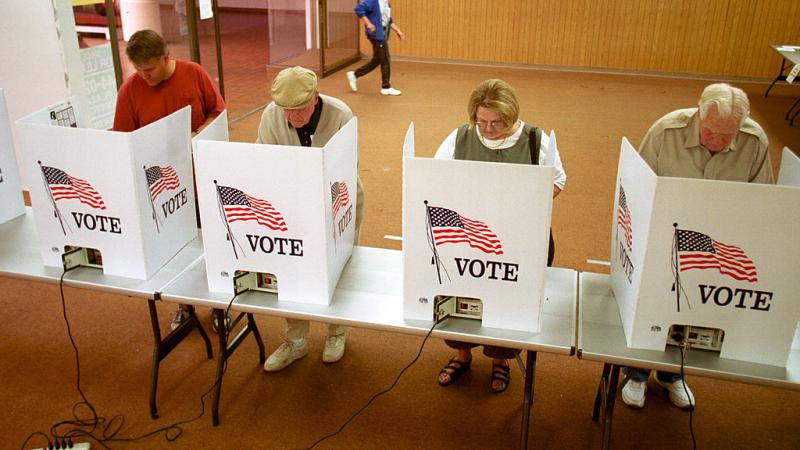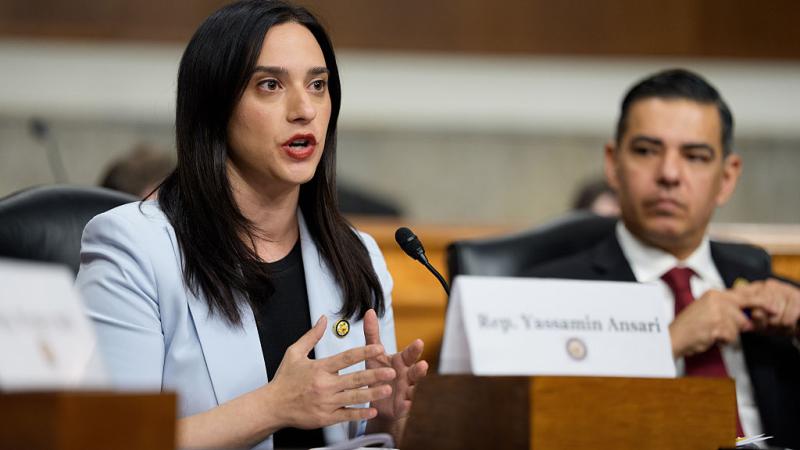At least nine states have pro-abortion ballot measures for November, with some facing lawsuits
“In states where abortion will be on the ballot, Republicans have the opportunity to expose how the extreme proposed amendments align with the Democrat agenda for all-trimester abortion in every state,” Kelsey Pritchard said.
At least nine states will have pro-abortion constitutional amendment proposals on ballots in November, during a presidential election with high voter turnout, with some states facing lawsuits from conservatives and pro-life groups.
Since the U.S. Supreme Court’s 2022 decision in Dobbs v. Jackson Women's Health Organization, which overturned Roe v. Wade and sent the question of abortion legalization back to the states, some states are facing ballot measures over whether to ensure that abortion is codified in state constitutions.
Some believe that pro-abortion ballot measures will help them increase Democratic voter turnout in the November election. For example, in New York, a ballot measure with the intention to protect abortion rights is being sent to voters as it “was really popular for candidates to stand with and encourage people to vote yes on the referendum” in Michigan in 2022, according to the campaign director for New Yorkers for Equal Rights.
By contrast, Kelsey Pritchard, Susan B. Anthony Pro-Life America’s State Public Affairs Director, told Just the News on Tuesday, “Some Democrats are under the illusion that putting abortion on the ballot will propel them to victory in November, but even Politico says this is not going to win them elections.
“In states where abortion will be on the ballot, Republicans have the opportunity to expose how the extreme proposed amendments align with the Democrat agenda for all-trimester abortion in every state,” she continued. “Republicans will win if they emphasize support for pro-life protections, communicate on the issue with compassion, and contrast their position with the deeply unpopular Democrat agenda for unlimited abortion in the seventh, eighth, and ninth months of pregnancy.”
According to a May poll conducted by Gallup, 35% of Americans said that abortions should be legal under any circumstances, 50% said that abortions should be legal only under certain circumstances, and 12% said abortion should be illegal in all circumstances.
Arizona, Colorado, Florida, Maryland, Missouri, Montana, Nebraska, Nevada, and South Dakota all have ballot measures that will enshrine abortion rights into the state constitutions if passed in November.
The Thomas More Society brought a lawsuit against the Missouri ballot measure last week on behalf of state lawmakers for creating a vague “super-right” for abortion. The lawyers argue that the “fundamental right to reproductive freedom” that the amendment proposes is “largely undefined,” and thus violates state law and the Missouri Constitution.
Meanwhile, a pro-abortion group is suing the Missouri secretary of state over his office’s description of the ballot measure, arguing that the language is “intentionally argumentative and is likely to create prejudice against the proposed measure,” the Associated Press reported.
Missouri currently only allows abortion in the event that it is needed to protect the life of the mother.
In South Dakota, the ballot measure would allow abortion to be regulated or prohibited in the third trimester “except when abortion is necessary, in the medical judgment of the woman’s physician, to preserve the life or health of the pregnant woman,” according to the AP.
A pro-life group is suing in an attempt to remove the initiative from the November ballot, claiming that wrongdoing occurred regarding the petition circulators. Last month, the group’s lawsuit was dismissed, but the ruling was appealed to the South Dakota Supreme Court.
South Dakota law currently states that it is a felony for anyone to administer an abortion “unless there is appropriate and reasonable medical judgment that performance of an abortion is necessary to preserve the life of the pregnant female."
In November, New York voters will be able to decide on the Equal Rights Amendment ballot measure that will extend the state constitution’s ban on discrimination to ethnicity, national origin, age, disability, “or sex, including sexual orientation, gender identity, gender expression, pregnancy, pregnancy outcomes, and reproductive healthcare and autonomy.”
Last Friday, a New York judge ruled that state election officials won’t be forced to include “abortion” and “LGBT” in the explanation of the ballot measure, after Democrats sought to add the language, the AP reported.
Supporters of the ERA claim that the constitutional amendment proposal will protect abortion access through expansion of the state’s anti-discrimination protections. However, the judge said that the possible impacts of the amendment on abortion would have to be decided by courts following its ratification.
In addition to the aforementioned states, Arkansas also came close to having a pro-abortion ballot initiative set for November. Last Thursday, the Arkansas Supreme Court approved the state's rejection of a pro-abortion ballot initiative. The state rejected the initiative because organizers reportedly failed to provide proper documentation for hired signature gatherers.
The ballot measure would have allowed abortion on demand in the first 20 weeks of pregnancy and abortion after that time for rape, incest, threats to maternal health, or fetal abnormalities inconsistent with life.
Susan B. Anthony Pro-Life America's Pritchard told Just the News on Tuesday that conservatives can be successful in defeating the pro-abortion ballot measures this fall. “GOP leaders in red states should be following the lead of Gov. Ron DeSantis who has been a champion in exposing the reality of the abortion measure in Florida,” Pritchard said.
”The only way abortion ballot measures in red states will pass is if voters are unaware that amendments eliminate parental rights, eviscerate health protections for women, ensure taxpayer-funded abortion and – worst of all – enshrine all-trimester abortion. Through carefully crafted language, these ballot measures will allow elective abortion in even the seventh, eighth, and ninth months of pregnancy," she said.
“The amendments would increase the number of late-term abortions in our country, where each year 50,000 unborn children are already aborted after 15 weeks when science shows a baby can feel pain and as many as 10,000 are aborted at 21 weeks or later,” she added. “Most late-term abortions are elective, according to the Guttmacher Institute, and they frequently involve coercion, indecision and partner abandonment, rather than health emergencies.”
The Facts Inside Our Reporter's Notebook
Links
- Dobbs v. Jackson Women's Health Organization
- according to the campaign director
- Politico
- May poll
- ballot measures
- lawsuit
- lawyers argue
- pro-abortion group is suing
- ballot measure
- South Dakota law
- Equal Rights Amendment ballot measure
- the AP reported
- Arkansas Supreme Court approved
- each year
- Most
- frequently















